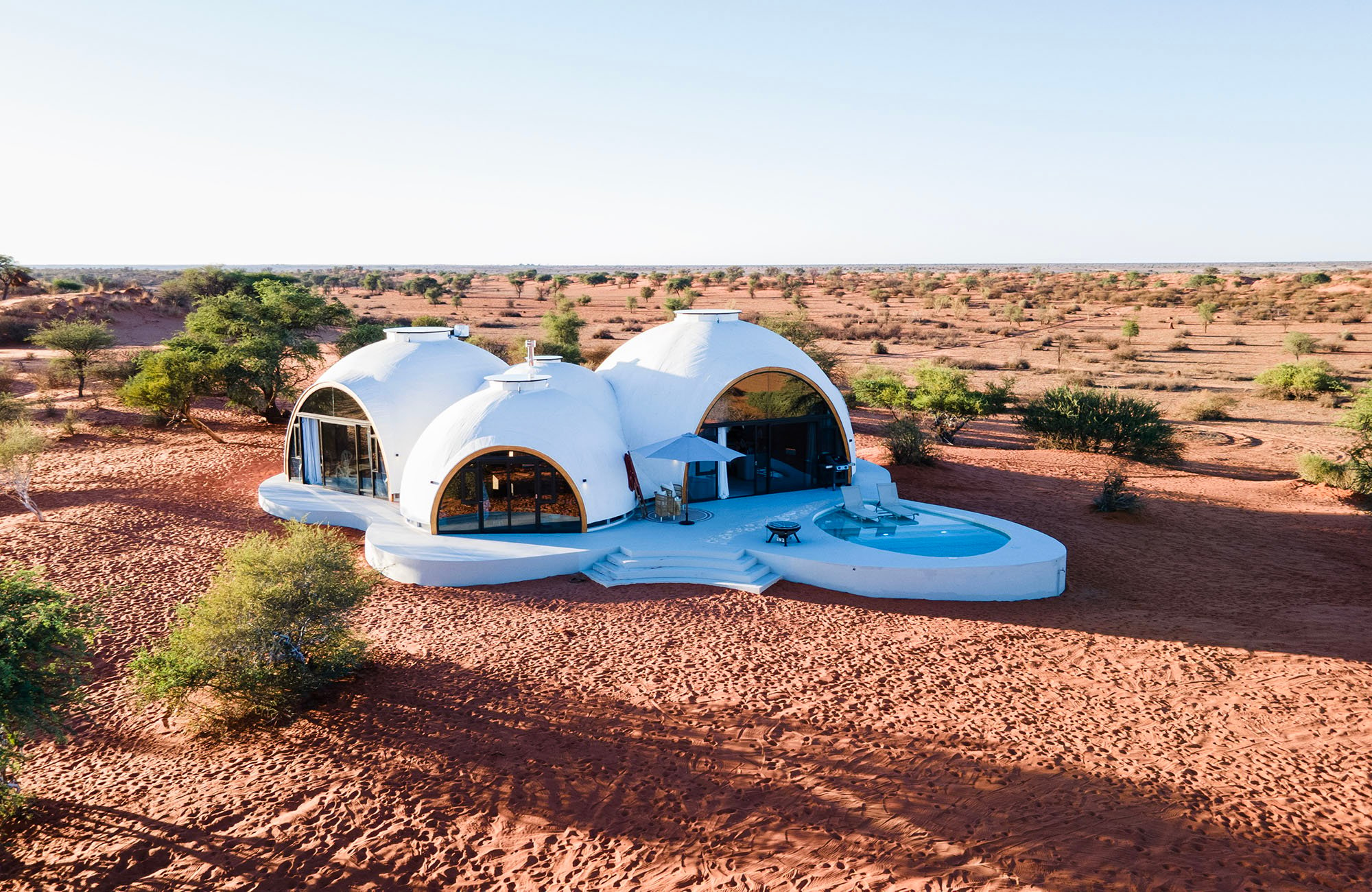Namibia, a country known for its stunning landscapes, rich cultural heritage, and diverse wildlife, has become a prime destination for tourists seeking a unique experience in Southern Africa. Over the years, the hospitality industry in Namibia has evolved, with a shift from simple lodges to high-end luxury accommodations catering to both local and international tourists. This transformation has significantly contributed to the growth of Namibia’s tourism sector, positioning the country as one of Africa’s most sought-after travel destinations.
In this article, we explore the evolution of hospitality in Namibia, examining how the industry has grown from humble beginnings to offer world-class luxury experiences that attract travelers from across the globe.
The Rise of Hospitality in Namibia: A Brief Overview
Historically, Namibia’s hospitality industry was largely centered around modest lodges and guesthouses located in key tourist areas such as Windhoek, Swakopmund, Sossusvlei, and Etosha National Park. These establishments primarily catered to adventurers and nature lovers looking to explore the country’s vast deserts, national parks, and wildlife. The initial focus was on providing essential accommodation and services to meet the needs of backpackers, self-drive tourists, and international travelers.
However, as Namibia’s tourism sector grew in the early 21st century, there was an increasing demand for more diverse accommodation options, including luxurious resorts, exclusive safari lodges, and boutique hotels. The introduction of higher-end facilities was driven by the desire to attract a broader range of travelers, from business tourists to high-net-worth individuals seeking exclusive experiences.
The Transformation: From Lodges to Luxury
1. The Emergence of Luxury Safari Lodges
One of the most notable trends in Namibia’s hospitality industry is the rise of luxury safari lodges, particularly in areas such as Etosha National Park, Sossusvlei, and the Skeleton Coast. These lodges offer a combination of world-class service, opulent accommodations, and access to some of the most spectacular natural wonders in the country. Many of these lodges are located in private game reserves or on large estates, providing an exclusive and intimate experience for guests.
Luxury safari lodges in Namibia have gone beyond traditional tourism offerings, incorporating sustainable practices and eco-friendly designs to create a minimal environmental footprint. This eco-conscious approach to luxury travel is particularly appealing to international tourists who are increasingly looking for sustainable and responsible travel options.
Key features of these lodges often include private plunge pools, gourmet dining experiences, guided wildlife safaris, and wellness facilities such as spas and yoga centers. These high-end lodges provide guests with the opportunity to immerse themselves in Namibia’s pristine wilderness while enjoying top-tier amenities and services.
2. Boutique Hotels: Personalized Luxury in Urban Centers
In addition to safari lodges, Namibia has seen a growing trend in boutique hotels, particularly in urban centers such as Windhoek and Swakopmund. These boutique establishments are designed to offer personalized service in an intimate and stylish setting. With a focus on offering bespoke experiences, boutique hotels in Namibia combine modern luxury with local cultural elements, creating a distinct sense of place.
For example, some boutique hotels feature architecture that blends contemporary design with traditional Namibian craftsmanship, while others incorporate indigenous art, decor, and locally sourced materials. The emphasis on personalized service and unique offerings is what sets boutique hotels apart from more traditional accommodations.
Guests staying in boutique hotels can expect high levels of comfort, with facilities including luxurious suites, private dining options, rooftop bars, and customized tours that showcase the best of Namibia’s cultural and natural attractions. Whether guests are visiting for business or leisure, boutique hotels in Namibia offer an exceptional stay that is tailored to their individual needs.
3. Exclusive Resorts and Villas: The Pinnacle of Luxury
For those seeking the ultimate in luxury, Namibia offers an array of exclusive resorts and private villas, where guests can enjoy unparalleled service, stunning surroundings, and absolute privacy. These resorts cater to affluent travelers looking for a secluded escape in Namibia’s breathtaking landscapes.
From private safari villas nestled in the heart of national parks to luxury resorts along the pristine coastline, these high-end accommodations provide the perfect setting for a lavish getaway. Guests can indulge in five-star dining, relax in private pools or Jacuzzis, and explore Namibia’s unique wildlife with bespoke safari experiences led by expert guides.
Some of Namibia’s luxury resorts also offer wellness retreats, where guests can enjoy spa treatments, meditation sessions, and wellness programs designed to rejuvenate the body and mind. These resorts provide a complete luxury experience that goes beyond just accommodation, making them the perfect choice for those seeking a combination of adventure, relaxation, and exclusivity.
4. Eco-Luxury: Sustainable Hospitality in Namibia
As global trends shift towards sustainability and environmental responsibility, Namibia’s hospitality industry has embraced the concept of eco-luxury. Many of the country’s top-tier accommodations are built with sustainable practices in mind, focusing on minimizing their environmental impact while still offering world-class amenities.
Eco-luxury resorts and lodges in Namibia often utilize solar power, rainwater harvesting, and waste recycling programs to reduce their carbon footprint. Additionally, these establishments focus on preserving Namibia’s unique ecosystems by supporting wildlife conservation efforts and promoting responsible tourism.
This growing trend towards eco-luxury is appealing to environmentally conscious travelers who want to enjoy a luxurious experience while also contributing to the conservation of Namibia’s natural heritage.
The Role of Hospitality in Namibia’s Economy
The expansion of Namibia’s hospitality sector has had a significant impact on the country’s economy. Tourism is one of the fastest-growing industries in Namibia, contributing billions of dollars to the national economy each year. The increase in high-end hospitality offerings has played a crucial role in attracting affluent tourists from around the world, boosting revenue and creating employment opportunities.
The hospitality industry supports a wide range of sectors, including agriculture, construction, transportation, and entertainment. The demand for local food products, crafts, and services has provided a boost to small and medium-sized enterprises (SMEs) in Namibia, helping to foster economic development at the grassroots level.
Moreover, the hospitality industry has been instrumental in driving the growth of Namibia’s tourism infrastructure, including improved roads, airports, and communications networks. The expansion of luxury accommodations has also led to the development of new attractions and experiences, which in turn has generated more interest in Namibia as a travel destination.
Challenges Facing Namibia’s Hospitality Industry
While Namibia’s hospitality industry has experienced significant growth, there are still challenges that need to be addressed in order to ensure its continued success:
- Seasonality of Tourism: Namibia’s tourism industry is highly seasonal, with peak travel periods during the dry season (June to October). During the wet season, which lasts from November to April, many accommodations experience lower occupancy rates. To mitigate this, the industry must find ways to attract tourists during the off-season, such as offering special promotions or focusing on niche markets like cultural tourism or wellness retreats.
- Infrastructure Development: While Namibia has made significant strides in improving its infrastructure, there is still a need for further investment in roads, airports, and digital connectivity, particularly in remote areas. Upgrading infrastructure will ensure that Namibia can continue to offer high-quality experiences for all types of travelers.
- Competition from Other Destinations: As the global luxury travel market continues to grow, Namibia faces increasing competition from other African destinations such as South Africa, Kenya, and Tanzania. To remain competitive, Namibia’s hospitality industry must continue to innovate and offer unique, world-class experiences that set it apart from other destinations.
Namibia’s hospitality industry has come a long way, evolving from simple lodges to a thriving sector offering world-class luxury experiences. As the demand for high-end accommodations continues to grow, Namibia is positioning itself as a top destination for luxury travelers seeking adventure, exclusivity, and sustainability.
With its breathtaking landscapes, unique wildlife, and commitment to responsible tourism, Namibia has the potential to become one of Africa’s leading luxury travel destinations. By continuing to invest in infrastructure, sustainability, and innovation, Namibia’s hospitality industry will be well-equipped to cater to the needs of discerning travelers for years to come.













